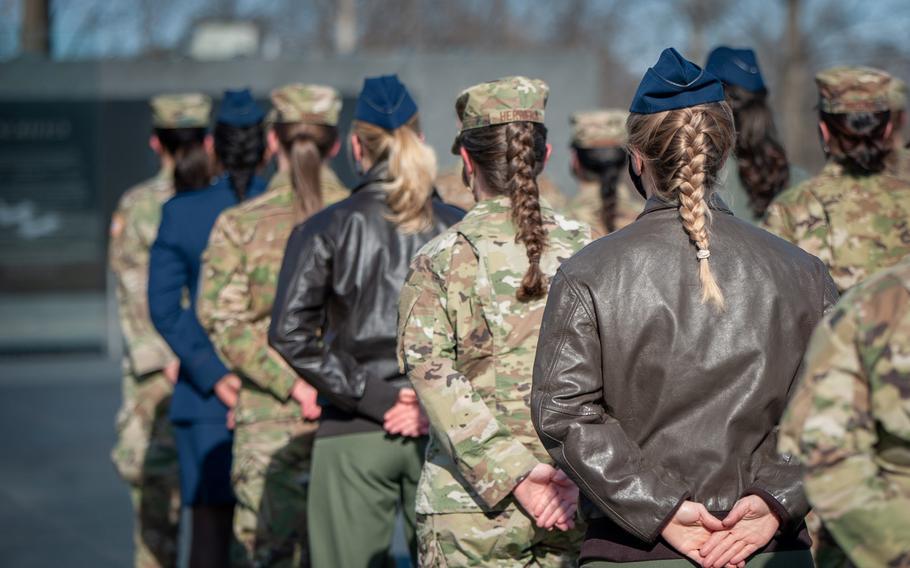
A women’s organization representing troops and veterans and a former Air Force service member filed lawsuits in 2023 against the Pentagon and Department of Veterans Affairs over restrictive fertility assistance policies, arguing they discriminate against single people and same-sex couples. (Jaimee Freeman/U.S. Air Force)
WASHINGTON — The Defense Department is expected to change its fertility assistance policies next month in response to a federal lawsuit that argued the military’s health care coverage discriminated against single people and same-sex couples.
The planned revisions outlined in a motion filed in the lawsuit last month indicate the Pentagon will end a marriage requirement for service members seeking in vitro fertilization, or IVF, treatments through the Tricare health care program and allow the use of donor sperm and eggs in the procedure.
“This is a big win,” said Sonia Ossorio, executive director of a women’s organization that filed the lawsuit on behalf of troops and veterans. “We are overjoyed for our military members who may now qualify for coverage and desperately need this care to build their family.”
IVF is considered the most effective form of reproductive assistance and can cost tens of thousands of dollars without insurance.
The New York City chapter of the National Organization for Women, or NOW-NYC, sued the Pentagon and the Department of Veterans Affairs in August 2023 over their IVF access policies. An Air Force veteran, Ashley Sheffield, also sued the VA, alleging she was denied IVF coverage because of her marriage to a woman.
The VA is reviewing its IVF policy but has not yet agreed to make modifications, according to a court document filed in the U.S. District Court for the Southern District of New York. The document states the Pentagon expects to finalize a signed memorandum by the end of February that formally directs its policy changes.
The Pentagon and VA did not respond Thursday to a request for comment.
The Pentagon’s new IVF rules would expand access to fertility treatments to service members who are lesbians, unmarried or cannot produce their own eggs or sperm. But barriers will remain for service members whose infertility cannot be directly linked to service-related illness or injury.
The Defense Department and the VA currently require documentation of such health issues before granting access to IVF. NOW-NYC has argued the requirement unlawfully excludes women whose infertility could be caused by damage from ill-fitting combat gear designed for men, trauma from sexual assault, post-traumatic stress disorder or other unrecognized conditions.
An active-duty soldier who has served in the Army for nine years said she and her wife have spent $30,000 and sold their house to pay for IVF out of pocket due to the Defense Department’s restrictions.
“While the DOD’s changes bring us one step closer to building our family, we could still have trouble accessing IVF because our fertility struggles have not yet been linked to a specific military injury,” said the soldier, who was unnamed in a statement provided by NOW-NYC, of which she is a member.
Infertility is significantly higher in the military community than the general population, in part because the demands of service and frequent moves force troops to delay parenthood, said Briana Thompson of the Yale Law School Veterans Legal Services Clinic, which helps represent NOW-NYC in its lawsuit.
“These stringent requirements are unlawful, out of step with IVF benefits provided to other federal employees and antithetical to the centrality of the military family to readiness,” said Thompson, a former active-duty Air Force officer.
NOW-NYC said it will not drop its lawsuit until remaining limitations on IVF treatments are lifted.
“This is only the first step,” Ossorio said. “We will continue to challenge DOD and VA to remove all discriminatory barriers so that each and every service member and veteran who needs this reproductive care can access it.”